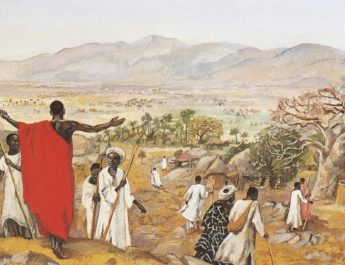John 15:9-17
Eastertide B24
9 As the Father has lovedA me, so I have loved you; abideB in my love.C
10 If you keepD my commandments,E you will abide in my love, just as I have kept my Father’s commandments and abide in his love. 11 I have said these things to you so that my joyF may be in you, and that your joy may be complete.G
12 “This is my commandment, that you love one another as I have loved you. 13 No one has greater love than this, to lay downH one’s lifeI for one’s friends.J 14 You are my friends if you doK what I commandL you.
15 I do not call you servantsM any longer, because the servant does not knowN what the masterO is doing; but I have called you friends, because I have made knownP to you everything that I have heardQ from my Father.
16 You did not chooseR me but I chose you. And I appointedS you to goT and bearU fruit,V
fruit that will last,W so that the Father will give you whatever you askX him in my name.Y 17 I am giving you these commandsZ so that you may love one another.
Image credit: “On this Rock” by Lambsongs – Jill Kemp and Richard Gunther.




